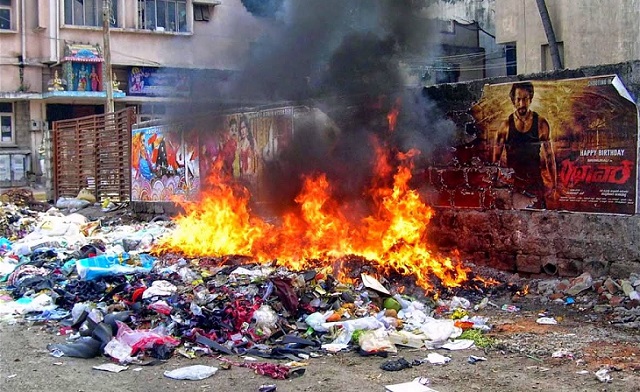
Kampala, Uganda | THE INDEPENDENT | The failure by governments across the world to ensure clear air, constitutes a violation of the rights to life, health and well-being, as well as the right to live in a healthy environment, an independent UN expert has said.
Ahead of the 2019 World Environment Day on Wednesday, which has air pollution as its theme, David Boyd, the UN’s Special Rapporteur on human rights and the environment, called on states to take urgent action to improve air quality in order to fulfil their human rights obligations.
Air pollution is a deadly, man-made problem, responsible for the early deaths of some seven million people every year, around 600,000 of whom are children. It is estimated that 90 per cent of the world’s population breathe polluted air and that every five seconds somebody around the world dies prematurely, as a result.
In a statement, Boyd said that uncontaminated air is a core component of the right to a healthy environment, together with clean water and adequate sanitation, healthy and sustainably produced food, a non-toxic environment, healthy biodiversity and a safe climate.
“The right to a healthy environment is fundamental to human well-being… which should be globally reaffirmed to ensure the enjoyment of this right by everyone, everywhere…,” he said.
Vehicle emissions, diesel generators, the burning of biomass and garbage, transportation and heating, as well as from industrial activities, poor waste management and agricultural practices,” have all contributed to poor air quality in Major cities.
In Kampala, the air quality has been reported to be six times higher than the World Health Organization Air Quality Guidelines having increased in the last decade, according to Kampala’s air quality index measured by the air pollution monitor at the end of last year.
It is thought that air pollution in Kampala is mostly caused by dust from unpaved roads, fumes from cars and open burning of waste. The Uganda National Environment Management Authority (NEMA), estimates that about 140,000 litres of fuel are burnt by idling cars every day, adding to the high levels of carbon emissions from small scale industries also emit high levels of.
Medical experts say that exposure to such contaminated air may narrow or block blood vessels and could lead to a heart attack, chest pain, stroke, or other respiratory diseases such as asthma, chronic bronchitis, lung cancer, and pneumonia.
The UN expert reiterated that government’s need to adopt recommended measures for reducing air pollution, contained in a report presented to the UN Human Rights Council in March. These include monitoring air quality and impacts on human health, assessing sources of air pollution; establishing air quality legislation and developing air quality action plans. He added that shifting to renewable energy could save up to 150 million lives by the end of the century.
“In celebration of World Environment Day, I urge States to take bold action to beat air pollution, improve health, address climate change, and fulfil their human rights obligations,” the expert said. World Environment Day, celebrated since 1974, is the United Nations day for encouraging worldwide awareness and action to protect the environment. It is organized around a theme that addresses a particularly pressing environmental concern.
*****
URN
 The Independent Uganda: You get the Truth we Pay the Price
The Independent Uganda: You get the Truth we Pay the Price



